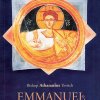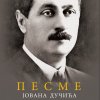The Only Begotten and Firstborn among Many Brethren
by Bishop Athanasius Yevtich
In Emmanuel, the second anthology of Bishop Athanasius' articles to appear in English, His Grace explores themes of Orthodox Christology, Soteriology, Ecclesiology, and Gnoseology. How can we know Who God is? How can we know who we are, as human persons created in His image and likeness? How can we become one with Him? Bishop Athanasius examines these and other foundational questions in depth in this volume, drawing from a wealth of Scriptural and patristic sources. In discussing diverse theological subjects, he always returns to his overarching theme: the communion that man can have with God through Jesus Christ the God-man, within Christ's Church and above all in the Holy Eucharist. His exquisite and unique way of engaging the reader in mutual dialogue, with the living Eucharistic experience permeating his every thought, instills in the reader a burning desire for that communion.
Soft-bound
Contemporary Christian Thought Series, No. 3 - First Edition
229 pages
ISBN 978-0-9719505-4-2





